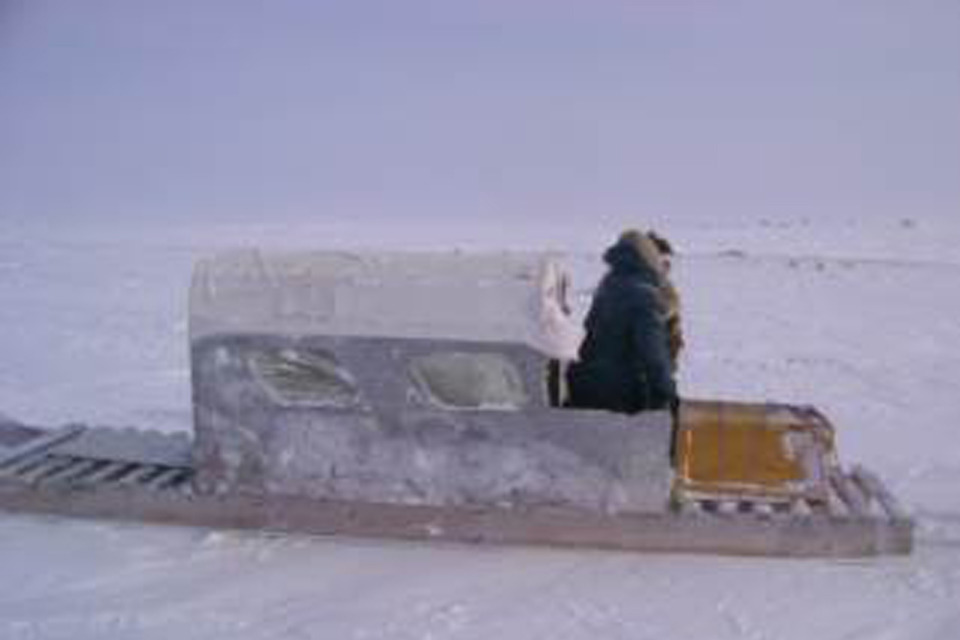by Chonglu Huang
While many are eager to seek out warmer climates this winter, Dr. Tom Kovesi and his team from the CHEO Research Institute are traveling northbound.
For the second year in a row, they are headed to Northern Ontario’s fly-in communities to conduct research on indoor air quality in Indigenous rural homes during the coldest months of the season.
“When the weather is cold, the homes are tightly sealed and that’s the time to collect indoor air quality samples and truly know if there are hazardous indoor air pollutants,” said Dr. Kovesi.
A uOttawa professor and distinguished pediatric respirologist at CHEO, Dr. Kovesi has been researching indoor air quality in northern Indigenous homes for nearly two decades. His work began with a 2003 study in Nunavut after seeing very high numbers of Respiratory syncytical virus (RSV) amongst newborns in Inuit communities.
“We started to see high volumes of Inuit children between the ages of 0 to 3 years suffering from RSV – a highly contagious respiratory virus most common amongst infants,” said Kovesi. “Its prevalence in Baffin Island at the time was 450 out of 1,000 infants, which was more than 40 times the rate for newborns in Ottawa.”
Dr. Kovesi’s initial study in Nunavut discovered that two-thirds of home ventilation units in Inuit communities failed to meet Canadian standards. He continued with his research to discover that large families in small dwelling compounded the issue, and that the installation of heat recovery ventilators (HRVs) in these homes significantly reduced the number of kids getting sick.
As the study progressed, housing authorities in Nunavut decided to require that all new housing in Nunavut have HRVs.
“These studies told us a lot about indoor air quality in Nuvanut, but it’s important to state that each Indigenous community is unique – both in Nunavut and across the rest of Canada,” he says. “For us to ensure our research is accurate and that it will eventually lead to positive change, it has to be location specific.”
Having spent years conducting research in Nunavut, Kovesi and his team are now focusing their efforts on indoor air quality in Northwestern Ontario.
Last winter, he and his team travelled to two communities near Sioux Lookout, Lac Seul First Nation and Kasabonika First Nation, and this year they are headed for two more communities: Sandy Lake First Nation and Kitchenuhmaykoosib Inninuwug (Big Trout Lake) First Nation.
Before commencing their work, Dr. Kovesi and his teams seek full permission from the communities they are working in. They consult with chiefs and Elders, host town hall meetings, and participate in call-in radio shows to answer questions and address concerns.
“It’s their land and we are merely their guests,” says Dr. Kovesi, who is a passionate advocate for Indigenous health and is conscientious about respecting the culture and traditions of his host communities. “We owe a great deal to the First Nations health representatives in these remote regions who help us conduct the data collection, while also helping us to make authentic connections with the families we are studying.”
As Kovesi prepares for his next trip North, his planning efforts must also take into account the physical challenges that come with this kind of work. These communities are not roads-accessible, so Dr. Kovesi and his team are reliant on weather forecasts conducive to air travel. Furthermore, bone-chilling temperatures can wreak havoc on even the best winter gear, so preparation and optimism are key.
“It’s hard work in harsh climates, but I believe this is the most important research I’ll ever do,” said Dr. Kovesi, whose work was recently presented in the Senate of Canada last September for a Finance Committee advocating for more funding for First Nations housing.
Furthermore, he teaches a course in the uOttawa MD curriculum called “Indigenous Respiratory Health” to second-year MD students that raises awareness about Indigenous health issues in Canada.
“I want to make things better for children in these communities,” added. Dr. Kovesi. “Canada is a huge country spanning diverse geographical territories and climates – children in every corner of our country deserve this kind of research attention that will most definitely contribute to a longer and healthier life.”


